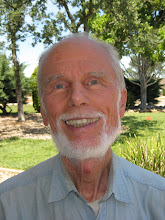In my last blog, my unstated point was that Catholics had remained intellectually engaged with the problems of culture and society when American Fundamentalists and Evangelicals retreated to build a subculture disengaged from law, government, education and art. In so doing, we disregarded God's creation mandate to be fruitful and multiply and fill the earth (with people) and to subdue it. The strong Christian foundations of American society and government and the social and religious conservatism of the American Revolution made this luxury possible for a long time, but the secularists and skeptics (such as Thomas Payne) were there from the beginning and their hostility to God and to Christianity eventually bore bitter fruit.
By contrast, Catholics were a somewhat despised minority in America and a target of the French style revolutionary thought that swept away the monarchies of continental Europe during the 19th and early 20th Centuries. Therefore, they recognized the threat of the Revolution both to Catholicism and to the traditional structures of civil society. Their critique of the social effects of the Revolution was cogent, but their sometimes reactionary support of monarchy and the privileged position of the Roman church under it was flawed. In America, however, a Catholic thinker, Orestes Bronson, seems to have recognized the benefits of the ordered liberty experienced here and, I think, developed a Catholic political theory consonant with it. At any rate, American Catholicism adapted to American political freedoms and the result is that Evangelical Christians and many conservative Catholics stand shoulder to shoulder in defending them.
Another life experience that relates to the continuing Revolution recognized by the Truth Project was my time with Christian World Liberation Front (CWLF) in Berkeley. This countercultural Christian ministry was founded by two former Campus Crusade for Christ workers, Professor Jack Sparks and Pat Matriciano, in the late 60s in Berkeley. Some of the Christians in CWLF, such as I, had a traditional church background, but others came to Christ straight out of the Counter Culture with its sex, drugs, rock music, Eastern religion and Revolution. Most of these Christians soon shed their sexual immorality, drugs and Eastern religion, but the rock music and revolutionary politics were more enduring, especially, the politics.
The two ministries growing directly out of CWLF that still exist illustrate the division in its ranks: Right On!, (then a newspaper, now a journal) and Spiritual Counterfeits Project (SCP [an apologetics ministry]). Right On!, in view of the real injustices abroad in the world, tends to side with the revolutionaries, as exemplified by Barack Obama, the latter, with the traditional American political virtues as exemplified by Ron Paul.
For my part, the anti-Christian essence of the Revolution, makes the practical matter of choosing which side I come down in the context of American politics easy. I'll admit that if I were a Native American living in El Salvador, Guatemala, or Columbia (where their majority status makes them a threat to the white ruling class), I might see things differently. But one thing Jesus was not, was a violent revolutionary. Neither were the early Christians who triumphed through Roman persecution by faithfulness, flight and martyrdom.
Friday, April 3, 2009
Subscribe to:
Comments (Atom)
